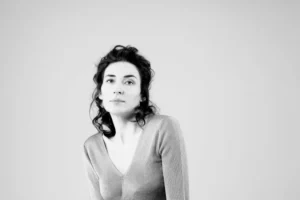
Théâtre de Champs-Élysées 2023 Review: Médée
Véronique Gens stands out as an enchanting Médée
By João Marcos CopertinoNowadays, there is much discussion about a singer’s fach, or, in more mundane terms: does a singer have “the” proper voice for a certain role? Although this discussion has its merits, it usurps the space of the more important question of how singers inhabit their characters through their acting personalities. Especially in less-performed repertoire—such as baroque and classical operas—it is always exciting when one goes to the opera house to hear how that singer will approach that character.
Véronique Gens is one of those singers who has managed, through her artistic personality, to make almost everything that she sings a compelling musical journey. Each of her performances is a study both of a character and of her own personality. The audience is there to witness the revealing of an artist’s development.
A Most Charming Médée
In Marc-Antoine Charpentier’s “Médée,” Véronique Gens reigned as the most charming of Médées. Politically savvy and emotionally aware, Her Médée was so enchanting that more than once the audience feared cheering for her.
The action in Thomas Corneille’s libretto is underpinned by topics similar to those that preoccupied his more notorious brother. In particular, the intersection between affection and politics. Médée here was extremely aware of her magical powers and yet searches in vain for a series of less aggressive political solutions. Médée becomes more and more individualistic. Her infanticide, more than mere revenge on Jason, was an act in which she attempted to prevent herself from seeing her mistake “Après ta traison,/ Ai-je dû voir mes fils dans les fils de Jason? (After your betrayal, should I see my children in the children of Jason?).”
Gens has sung a character similar to Médée this season. Last October, she sang Gluck’s Armide. And her voice behaved more or less the same in both cases. She has a crystal-clear enunciation of French, and her projection got better and better after an hour of performance, as if the character became more and more comfortable in the room’s acoustics.
Finally, by the end of the performance, Gens started to become extremely gracious in a few striking physical gestures that complement both her voice and the text. In “Médée,” by the time of her Act four confrontation with Creon, Gens, the artist and Médée the character, were indissoluble. Her tight vibrato expanded toward the audience, convincing them that Médée was right in her quest for revenge.
Gens’s dramatical skills were even more apparent in a concert version of the opera. And it is important to say that “Médée,” though a very good opera, is not short, and that, to this reviewer’s taste, its prologue and its Act two are longer than they need to be.
Whole Cast Brought Their A-Game
Alongside Gens’s powerhouse performance, Cyrille Dubois sang a strong Jason. His voice sounded powerful and managed well the argonaut’s trickster nature. Dubois sang slowly, with very thrilling trilli that showcased both his great intonation and Jason’s charm. His voice lent to the evening a sense of freshness that justified his lack of political and emotional craftiness.
Judith van Wanroji’s Créuse was a good lyrical counterpoint to Gens’s Médée, though the role is dramatically ungraceful. In her final duo with Médée, Wanroji had her best moments: foregrounding the differences between the two characters, her voice sought a certain lyricism and sweetness.
Thomas Dolié was a severe Créon; his character sounded like the most disgraceful of all politicians. His Crèon showed proper emission in all registers. There was something inflexible in all the phrases, which, without making the expression of the character entirely monolithic, preserved a sense of the stubborn king’s inability to change.
David Witczak’s Oronte, the frustrated lover, likewise presented a solid approach to the character and showed no issues in projection and vocal construction.
All the supporting roles were well-sung by a gigantic cast of singers. Charpentier’s “Médée” requires a cast of, minimally, eleven (!) soloists. Not to dismiss the achievements of anyone else by noting, in particular, how impressive the quality of intonation and dynamics of Jehanne Amzal’s long sustained note—afterward mimicked by the choir—at the end of Act four. It was the perfect incorporation of its words: “Aprés des mortelles alarmes,/ Qu’un heureux calme semble doux.”
The musical direction of Hervé Niquet was effective, with an orchestra that marked the tempi well. The chorus was surprisingly sonorous, given the repertoire. Just a couple of days ago, Opèra de Paris announced they will stage Charpentier’s “Médée” next fall. They will have a big job topping this Champs-Elysées’ production.


